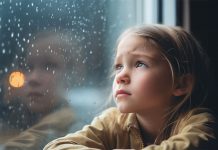In recent weeks, we have all experienced a state of unrest. Our eyes have been on the rising numbers of COVID-19 infections, as we try to comply with the restrictions imposed by the state of emergency. But we have also had bright moments, moments we might not have anticipated just a short time ago.
Some of us have had a real feast of time in recent weeks. This bonus time, unfortunately, has been accompanied by a cloud of uncertainty, which has tempered the joy we would have felt if we had this privilege of time under normal circumstances.
Others have witnessed scenes they have never seen before or become aware of feelings they did not have before, but which they now recognise were missing. It is these amazing changes, which we could not have anticipated a few weeks ago, that capture our full attention, albeit for a short period of time. In the same way that spring flowers transform the black face of the earth, the fulfilment of a long-awaited promise, these changes can lift our spirits.
A planet that breathes freely
“Have you ever seen the stars?” journalist Chai Jing asked a 6-year-old girl from Shanxi Mining Province. Jing was working on her now famous documentary on pollution, “Under the Dome“. The little girl admitted sadly that she had never seen stars, nor white clouds, but that she had once caught a glimpse of the pale-blue sky.
No one could have imagined that, five years after the documentary came out, the sky above China would turn blue again.
After the COVID-19 pandemic forced authorities to close factories and impose measures to restrict traffic, pollution drastically decreased. The average number of days with “good air quality” increased by 21.5% in February 2020, compared to the same month last year, according to the Chinese Ministry of Ecology and Environment. Pollution has not only been reduced in Hubei. Nitrogen dioxide emissions in many of the country’s major cities plummeted between January and February 2020, according to satellite images released by NASA and the European Space Agency. Carbon dioxide emissions also fell by 25% between February 3 and March 1, according to the Center for Research on Energy and Clean Air. The impact of this decline is remarkable, even if it remains to be seen how long it will continue, with China generating 30% of global carbon dioxide emissions.
“This is the first time I have seen such a dramatic drop-off over such a wide area for a specific event,” said researcher Fei Liu of the Goddard Space Flight Center.
There has also been a decrease in the concentration of air pollutants in Europe, especially nitrogen dioxide, a pollutant emitted primarily by road traffic. The reduction of pollution took place against the backdrop of a massive decrease in regular traffic. During the current pandemic, Brussels traffic peaked at 7% of the usual level. In Madrid and Barcelona, their peak was at 4%. Air traffic in Europe fell by 90% in March and April compared with the same months last year.
With people locked up in their homes, and with tourism out of service, “nature is reoccupying its space during quarantine in Italy,” a Twitter user commented. Indeed, the canals of Venice have cleared enough that fish can be seen. Cormorants and egrets enjoy the water, after boats and people stopped dumping waste into it. Dolphins appeared in the port of Cagliari, on the island of Sardinia, taking advantage of the absence of cruise ships. A large family of lions was photographed sleeping on a road in South Africa that was once busy with traffic, and a rare species of turtle (Dermochelys coriacea) returned to the beaches of Florida and Thailand, after many years of absence.
Some have observed the irony of our present situation: While the new coronavirus attacks the lungs of the most vulnerable of us, this is a time when the lungs of the planet are breathing a little more freely.
And so, this may be a time when not only governments, but each of us, should meditate on the question that Bianca Yamaguchi, founder of Zero Waste Japan, was asking in 2015: “You will agree, I think, that if all of a sudden all the insects in the world disappeared, life on our planet would completely disappear in a few years. Instead, if humans disappeared, life on the planet would flourish! How do you feel knowing that you are more dispensable than a worm?”
Returning to our better selves
In the crisis caused by the new coronavirus, the world seems to have stopped for a while, and invited us to join it in resting. Most of us have been required to stay within a restricted space, been forced to spend more and more time in this space—a space we used to say we spent too little time in: home. And we woke up—a sore lack of time having prevented us from waking up sooner—to the opportunity to reflect on all the choices and values of our past selves, and to ask ourselves if life was worth living the way we had been living it.
“This crisis shakes us like spoiled children,” former journalist Emanuel Ciocu, currently based in Tenerife, wrote in a Facebook post. He lists many of our priorities that the new coronavirus has revealed to be misguided. He starts in the field of restaurants, because he owns one in Spain, and he fears he will not be able to put it back on track after the coronavirus crisis is merely a memory.
The difficult period we are going through “heals us from the snobbery of the last decades, from the culinary haute couture. And it reminds us that…we eat to live, not to put on a show. It reminds us that hungry children die while we spend hundreds of euros on a tasting menu.”
The crisis has taken a veil off our eyes, showing us that we can live very well without products and services that swallowed huge slices of our budget in the past. Barricaded in our houses, “deprived of relationships and social appearances”, it becomes clear to us what is essential and what is not. Perfumes, clothes, handbags, and branded watches have been left, for the moment, without a catwalk to parade on. They are no longer as valuable to us as they seemed yesterday, Ciocu points out.
Maybe we feel like we don’t have enough breathing room, tired of being trapped between the walls of our homes. But our vision has been sharpened to the point where we are able to discern the ingratitude we displayed during the sunnier times. “We realize now that we need more and better paid doctors and researchers and fewer football players and TV stars; football players earning skyrocketing fees, who advertise exactly the things we don’t need at the moment,” writes Ciocu, concluding that we have the opportunity, now more than ever, “to discern the true value of things.”
Returning to our families
A virus so small has managed to put large distances between us and our loved ones. We know of doctors who only ever see their children through a window, for fear of infecting them. Sons and daughters have had to leave shopping bags in front of their parents’ doors. I read the other day of some people who grabbed a chair and sat next to their parent’s gate to exchange a few words with them, while their parents spoke from the window.
At the same time, the lockdown has gathered family members into a tight unit. Despite the inevitable inconveniences (online school burdening the parents, working from home not being as efficient as office work when children are at home and require parental attention), many of them say that being together all day is an experience they had longed for. Worrying about tomorrow is still common practice, negative news still rings out around the globe, but parents and children eat every meal together, play together and create their little oasis of peace, re-calibrating their relationships in this nest of quiet time.
“In this age of social distancing, some families are closer than ever,” writes Raquel Laneri in an article for The New York Post, which tells the story of several millennials returning to their parents’ homes once it became clear that the epidemic would last.
“There are huge benefits to living with your family right now, from access to healthy food to mental health support,” said Dr. David Markenson, director of the New York Medical College’s Center for Disaster Medicine. However, Markenson warns that there is a risk wherever people gather together, even if they are members of the same family, because the risk of infection increases and the elderly and those with chronic diseases are particularly vulnerable.
The Carrigan family believes that the pandemic is best fought together, so the three daughters, Laura, 29, Ciara, 23, and Nieve, 21, have returned to their parents’ welcoming home. Laura has brought her husband into the family home, too. Although they have never lived long distances from each other, the girls say that this experience brought them even closer: “It is better to be together, under the same roof, than alone and miles apart.”
Of course, not all families are together, and some do not enjoy staying at home at all, probably for reasons older than the pandemic. And for others, like couples in love but stuck at a distance, this has been a time of discovering new ways to connect.
Jean Perez, a musician living in Madrid, was stranded in Puerto Rico after borders closed, while his wife, Maria, remained in Spain with no friends or family to turn to. Almost 6,500 kilometres away from each other, with a time zone difference of 6 hours, Perez and his wife have spoken to each other frequently on FaceTime. At bedtime, he leaves messages for her so she can find them in the morning. “In all the pandemic and the ‘end of the world’ moments we are going through, I can still enjoy our time and intimacy. I can appreciate our relationship all the more,” Perez wrote, adding that, although he does not know when they will see each other face to face, he is convinced that it is going to be a magical moment.
Hopeful news
Perhaps the lack of good news from researchers who are looking for a vaccine or effective treatment for COVID-19, as well as expert opinion pointing to the slim chance that life will get back to ‘normal’ in the near future, does not inspire much courage. Still, to find hope, we just have to look in the right direction.
Although it has claimed more than a quarter of a million lives, COVID-19 mortality rates have not been as high as specialists feared. Isolation measures were an important protective factor, and while many medical systems have been overwhelmed by patients, the mortality rates being lower than predicted is encouraging.
The crisis also inspired an extraordinary sense of solidarity. The press has written about companies and NGOs that donated money and protective equipment to hospitals, groups of volunteers who delivered food to the elderly in dire need, and psychologists who have offered free services to people overwhelmed by the crisis.
On April 24, 2020, Andrew Cuomo, the governor of New York, received a letter from Dennis Ruhnke, a farmer in his state. At the age of 70, despite having a single lung and a diabetic wife, Ruhnke wrote that he wanted to join the efforts of those helping out in the disaster his country was going through. He had found an unused N95 mask from the time he was working in agriculture and sent it to the governor, asking for the mask to be handed to a doctor or a front-line nurse. Cuomo praised this gesture as one that shows humanity at its best, and Ruhnke later received the Kansas State Medal of Honor, as well as a graduate diploma from Kansas State University (in 1971 he had dropped out of college after his father died, and he returned to take care of his family and farm).
In Europe, many refugees who worked in the medical systems in their countries of origin have found ways to get involved in caring for those affected by COVID-19. Mohamed is a 39-year-old doctor from Libya who trained to become a surgeon before war forced him to flee to France in 2016. He passed the French language exams and completed a training course in his adoptive country. He then offered to volunteer for local humanitarian organizations, such as Les Restos du Cœur. When the COVID-19 crisis hit France, he signed up to the emergency list opened by the Ministry of Health to support medical staff in hospitals. Mohamed says that his experiences in Libya help him to stay calm and focused: “An epidemic can be stressful, but it is nothing compared to a war. I am not afraid. I’m ready to go anywhere in France to help.”
In times of crisis, we are tempted to fervently seek hope and help from outside ourselves. But perhaps we should first think about how we can be part of the hope and help that others need, while we anchor ourselves in a hope more robust than any planetary crisis. As Pastor Ovidiu Rădulescu wrote in one of his posts, “Help is on the way, hope is the way.”
Carmen Lăiu is a writer for ST Network and Semnele timpului.



















